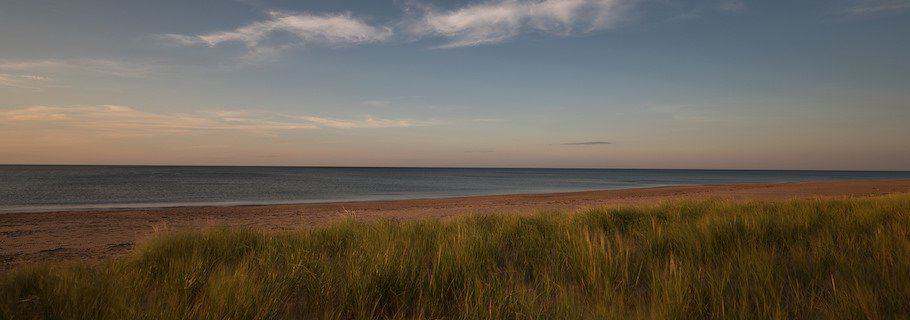I suppose it’s not a “manly” thing to admit, but Anne of Green Gables is one of my favorite novels, and one I read often. I am drawn to the character Lucy Maud Montgomery created—a quirky child who sees the world through a lens that is pained, optimistic, zany, childlike but still mature beyond her years. It’s a pleasure to see reality (and fantasy and the sometimes thin distinction between them) through her eyes. I’m drawn to the way Anne makes the world and the people around her so much better by simply being who she is in her strengths, her weaknesses, and her eccentricities. I appreciate her even more now that I’ve got girls of my own. They remind me of her; she reminds me of them.
I’m also drawn to the author herself, since you have to believe that in some ways Lucy is Anne and Anne is Lucy. Anne speaks with her creator’s voice, and this is clearest when it comes to her funny and at times pained observations about Christianity. Lucy was a product of Scottish Presbyterianism in Atlantic Canada and it’s clear that along the way she became deeply conflicted about her faith with its Calvinistic precepts and its traditional notions of the roles of men and women. Like so many people before and since, she is haunted by her strict upbringing but unable to completely let it go (as evidenced later in life when she married a pastor—a decision she soon regretted). Anne speaks Lucy’s doubts and complaints as a girl who has a very formal understanding of Christianity through Bible stories and the Shorter Catechism but who has the audacity to question and even to doubt. Though as time passed Lucy became increasingly embittered against Christianity, in Anne of Green Gables she is still thinking, pondering, and only just beginning to turn away. Based on some of her zingers, I suspect she’s also conflicted about her relationship with America and Americans.
I probably need to say something about film adaptations. I think the two original Kevin Sullivan adaptations are faithful and good—ideal family viewing even all these years later. I wish they were more widely available. The third film (which came much later) is a disappointment. The new Netflix series Anne with an E has some solid elements in its early episodes but chose to imagine Anne as a twenty-first century figure with modern views and morals who happens to live a hundred years before her time. We gave up after only a couple of episodes since the real Anne and her real context were very nearly unrecognizable.
With all that said, here are a few of my favorite quotes from Anne of Green Gables.
“I don’t ever expect to be a bride myself. I’m so homely nobody will ever want to marry me—unless it might be a foreign missionary. I suppose a foreign missionary mightn’t be very particular.”
“Don’t you know it’s a terrible wicked thing not to say your prayers every night? I’m afraid you are a very bad little girl.” “You’d find it easier to be bad than good if you had red hair,” said Anne reproachfully.
“The sermon was awfully long, too. I suppose the minister had to match it to the text. I didn’t think he was a bit interesting. The trouble with him seems to be that he hasn’t enough imagination. I didn’t listen to him very much. I just let my thoughts run…”
“The world looks like something God had just imagined for His own pleasure, doesn’t it?”
“Mrs. Lynde says that sound doctrine in the man and good housekeeping in the woman make an ideal combination for a minister’s family.”
“I can just feel she’s glad she’s a Christian and that she’d be one even if she could get to heaven without it.”
“I had such an interesting talk with Mrs. Allan about besetting sins last Sunday afternoon. There are just a few things it’s proper to talk about on Sundays and that is one of them.”
“It’s always wrong to do anything you can’t tell the minister’s wife. It’s as good as an extra conscience to have a minister’s wife for your friend.”
“If I were a man I think I’d be a minster. They can have such an influence for good, if their theology is sound; and it must be thrilling to preach splendid sermons and stir your hearers’ hearts. Why can’t women be ministers, Marilla? I asked Mrs. Lynde that and she was shocked and said it would be a scandalous thing. She said there might be female ministers in the States and she believed there was, but thank goodness we hadn’t got to that stage in Canada yet and she hoped we never would.”
“Well, Anne, I hear you’ve given up your notion of going to college. I was real glad to hear it. You’ve got as much education now as a woman can be comfortable with. I don’t believe in girls going to college with the men and cramming their heads full of Latin and Greek and all that nonsense.”










